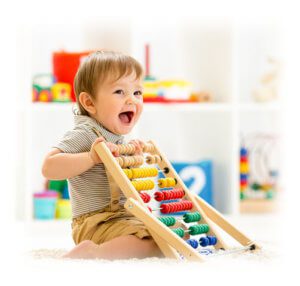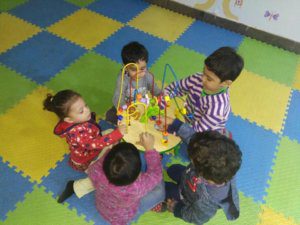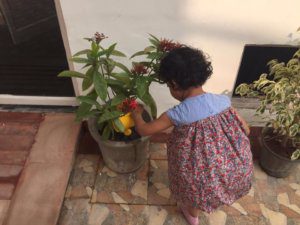One of the most critical decisions you make as a parent is choosing the right childcare option for your little one. With so many choices available, it can be tricky to navigate the world of playschools, daycares, and creches near me. But don’t worry—we’re here to help you sort through these options and find the perfect fit for your child’s growth and development.

Understanding Your Options
When it comes to choosing the right environment for your child, there are different options available in India, such as playschools, daycare centers, and creches. Before selecting the best local playschool near me or searching for a daycare near me, it’s essential to consider convenience, quality of care, and opportunities for holistic development.
Let’s explore the differences between playschools, daycare centers, and creches to help guide your decision-making process. The goal is to ensure that your child’s early years are spent in a nurturing and enriching setting that sets the foundation for a lifetime of success.
Creche: A Haven for Infants
While typically having a higher caregiver-to-child ratio, creches provide a more intimate setting where children can receive personalized care and attention. A creche near me offers a nurturing environment for infants aged three months to two years, prioritizing their basic needs and routines. A creche might be the perfect choice if you’re looking for a safe and cozy space for your little one.
Daycare Center: Catering to Toddlers and Preschoolers
Daycares, with their larger groups of children, may offer less individual attention but more opportunities for socialization. Daycares near me cater to a broader age range, offering childcare and play activities for toddlers to preschoolers (around 2-5 years old). Whether you need full-time or part-time care, daycare centers provide socialization opportunities and a structured environment for your child.
Playschool Near Me: Fostering Early Learning Through Play
Playschools near me focus on early learning through play-based activities, catering to preschoolers aged 2.5-5. They may have smaller class sizes and more focused attention from teachers, which can be beneficial for children who thrive in a structured setting. A playschool might be the perfect fit if you’re keen on fostering your child’s social interaction, creativity, and love for learning.
Finding the Right Fit Near You
Ultimately, deciding between a playschool, daycare, and creche will depend on your child’s needs and your family’s schedule and preferences. By carefully considering factors such as social interaction, personal attention, and educational philosophy, you can choose the right environment to support your child’s growth and development in their early years.
Whether you opt for a playschool with a strong educational focus, a daycare with a balance of learning and play, or a creche with a nurturing and intimate setting, you can rest assured that your child will be in a safe and enriching environment that lays the foundation for future success.
Are you searching for a creche, daycare, or playschool near you? Look no further! Whether you’re exploring options online or seeking recommendations from local sources like hospitals or maternity clinics, finding childcare that meets your needs is easier than ever.
Why IPSAA Could Be Your Perfect Choice
At IPSAA, we understand the importance of nurturing the whole child. Our progressive curriculum prioritizes holistic development, incorporating creative expression, physical activity, and emotional well-being. With experienced educators and a stimulating environment, IPSAA is committed to helping your child learn, play, and grow.
As we can understand, each option offers unique benefits and challenges, so it is essential to carefully consider what environment will best suit your child’s needs. With IPSAA, rest assured that your child’s early years will be spent in a nurturing and enriching setting that sets the foundation for a lifetime of success.
Still on the Bubble? Go with Your Gut!
Choosing the right childcare option is crucial for your child’s development and peace of mind. Consider your child’s age and specific needs, whether you opt for a creche, daycare, or playschool near me. So, hear what our parents say about us before choosing us. And when you’re ready to embark on this exciting journey, remember that IPSAA is here to support you every step of the way.
Contact IPSAA today to schedule a visit and experience the difference firsthand. Let us partner in nurturing your child’s development and ensuring a bright future.
Happy child, happy parent – together, we can make it happen!






